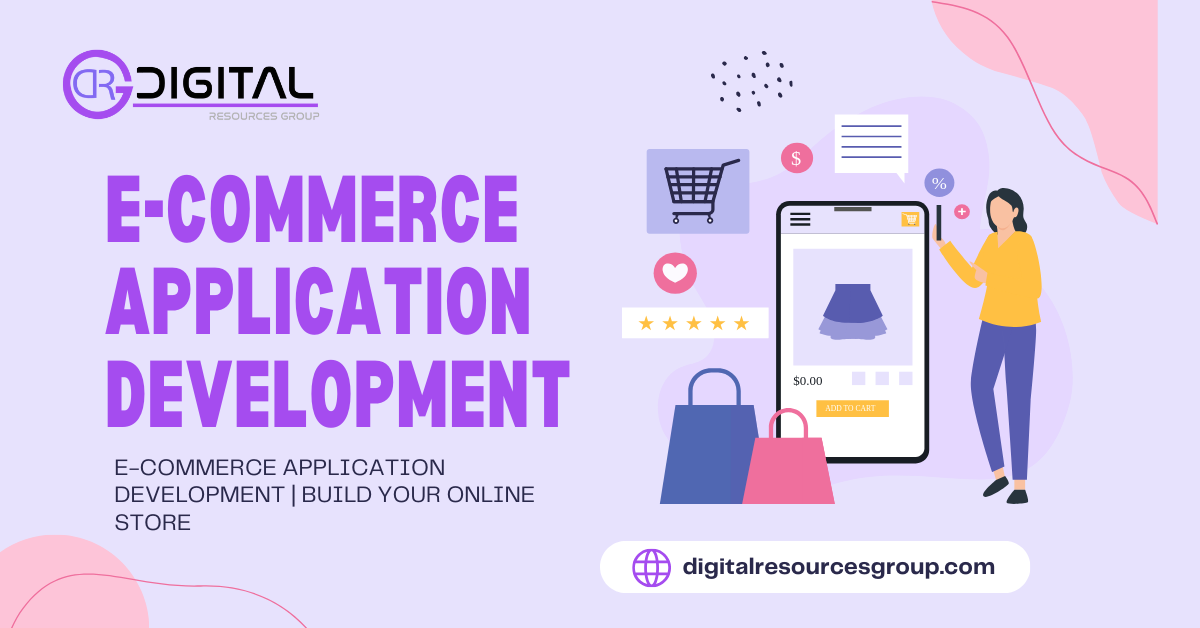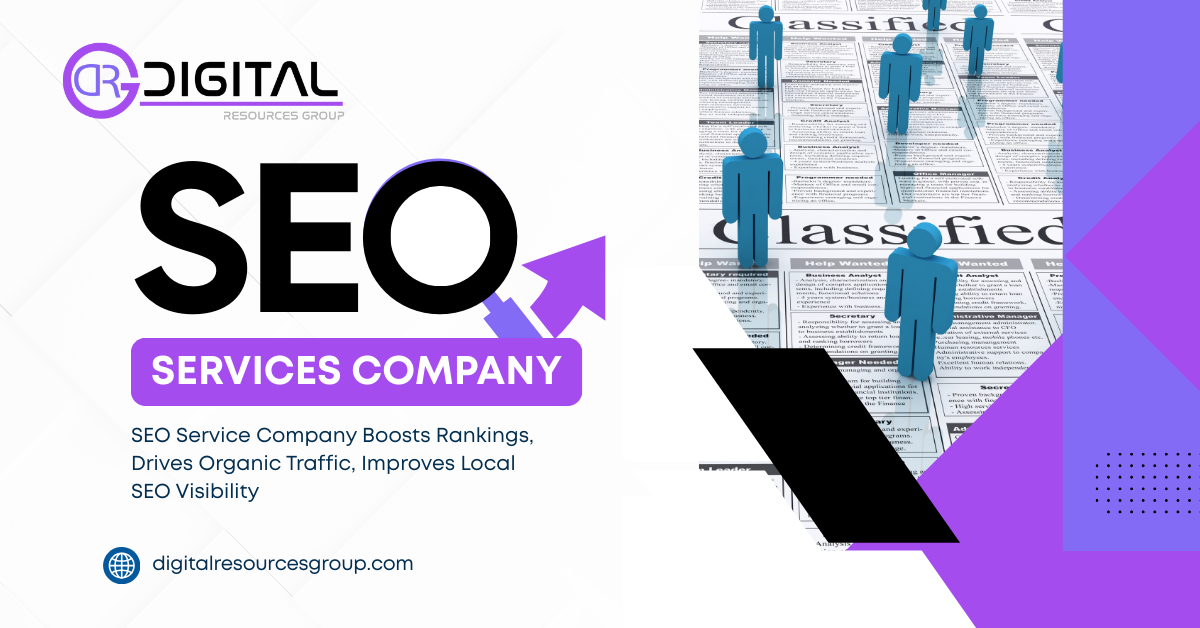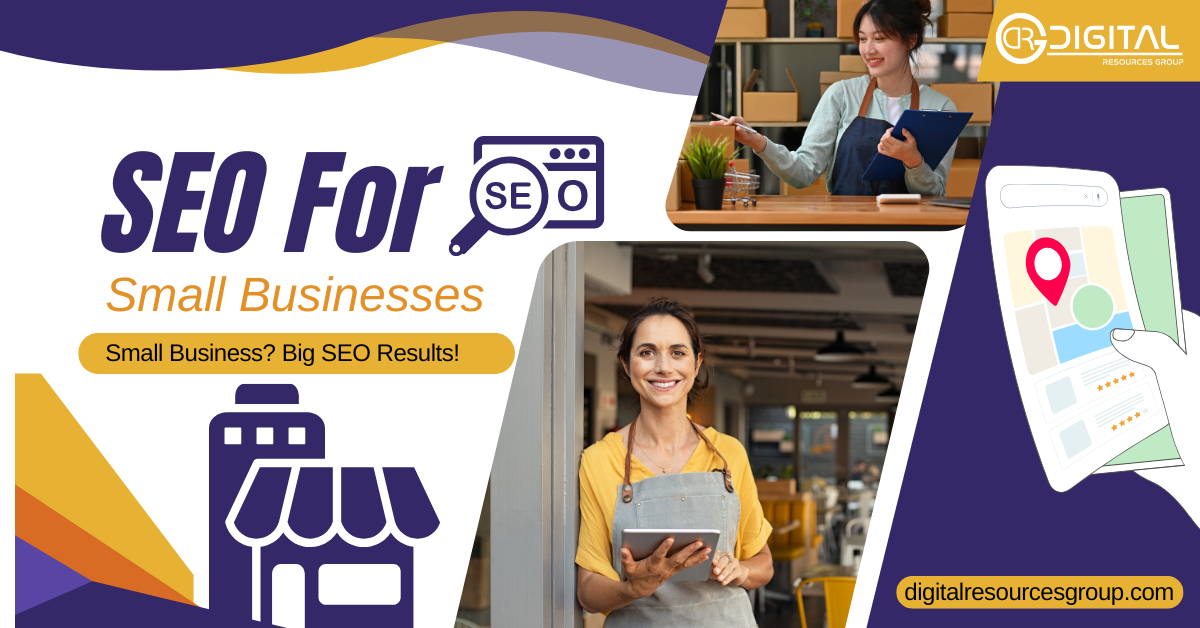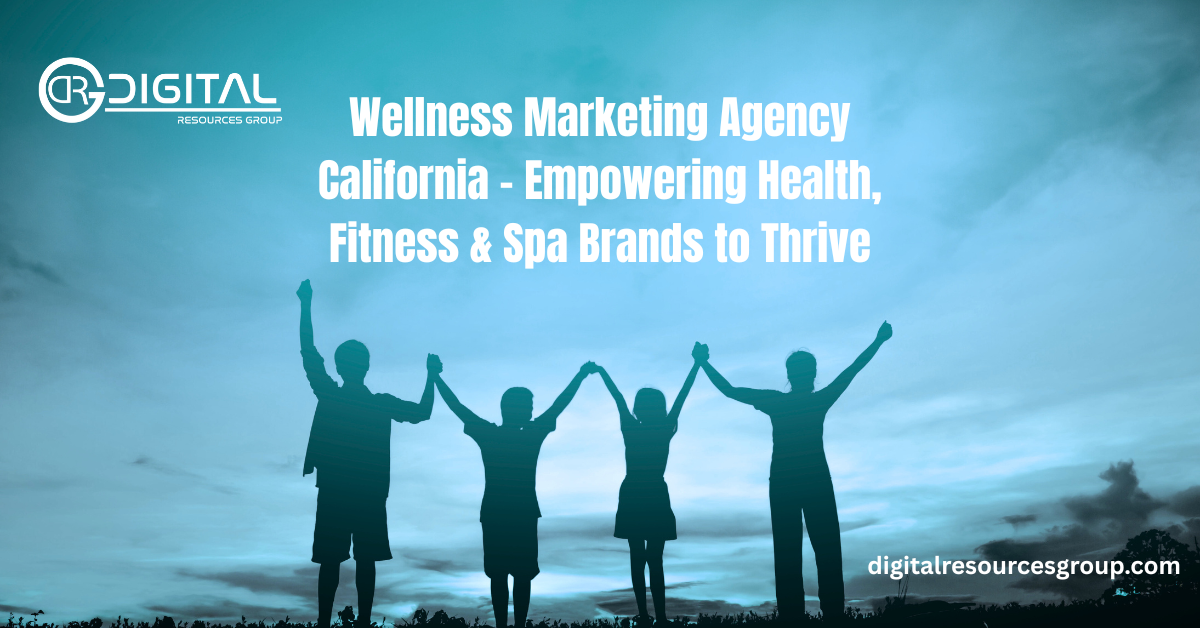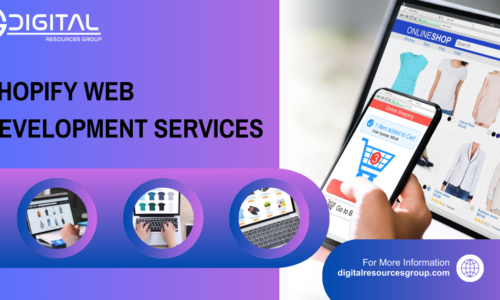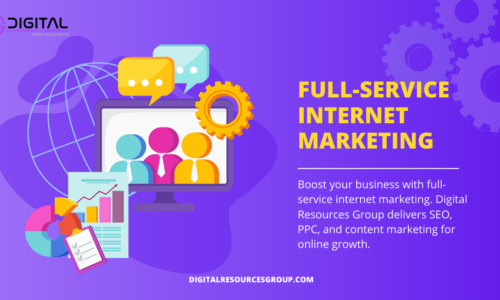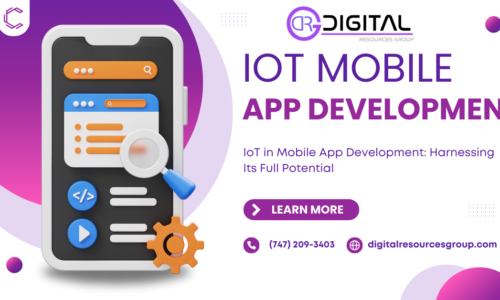- Digital Resources Group
- 0 Comments
- 414 Views
Digital Resources Group is a leading provider of cutting-edge e-commerce application development services designed to transform your online business into a high-performing, scalable powerhouse. As the digital landscape continues to evolve, having a custom-built e-commerce application is no longer a luxury but a necessity for businesses aiming to stay ahead of the competition. Whether you’re a startup or an established enterprise, Digital Resources Group can help you build a tailor-made solution that suits your specific needs, ensuring seamless operations, improved customer experience, and increased sales.
The rise of online shopping has revolutionized how businesses interact with customers, and developing a robust e-commerce platform is crucial for success in today’s marketplace. This guide will walk you through everything you need to know about e-commerce application development, from understanding the process to choosing the right development company, and even ensuring your application stays updated and scalable for the future.
Why Choose an E-Commerce Application Development Company?
Specialized Expertise and Tailored Solutions
When it comes to developing an e-commerce application, working with a specialized e-commerce application development company brings unparalleled expertise and experience. These companies understand the complexities of the e-commerce industry, from product management to payment gateways, and they can create a solution that is fully customized to meet your specific needs. Unlike generic platforms that offer limited customization options, an experienced development company can build a solution that aligns perfectly with your business model, target audience, and growth aspirations.
Moreover, an e-commerce application development company focuses on delivering the latest technology, ensuring that your platform is built with scalability, performance, and security in mind. They understand the intricacies of building applications that can handle high traffic volumes, ensuring smooth performance during peak times. This is particularly important for businesses that expect rapid growth or seasonal spikes in traffic.
Focus on Innovation and Future-Proofing
Choosing an e-commerce application development company allows you to stay ahead of trends and innovations in the industry. These companies invest in research and development, ensuring that your platform incorporates the latest technological advancements such as AI, machine learning, and AR/VR experiences. This means your business can not only meet today’s customer expectations but also future-proof itself against changes in the digital commerce landscape.
A reliable development partner will also ensure that your application is adaptable to future needs, such as integrating with new marketing tools, payment systems, or customer service platforms. This level of foresight and innovation is difficult to achieve with off-the-shelf solutions, making a specialized development company the best choice for long-term success.
The E-Commerce Development Process: A Step-by-Step Guide
Requirement Gathering and Analysis
The first stage of any e-commerce application development project is requirement gathering and analysis. During this phase, your development company will work closely with you to understand your business objectives, target audience, and specific needs. This includes discussing features such as product catalog management, shopping cart functionality, user authentication, and payment integration.
In addition to functional requirements, this phase will also focus on technical requirements such as platform scalability, security measures, and potential third-party integrations. By clearly defining your needs early on, your development company can avoid costly revisions later in the process and ensure the application meets your business goals.
Planning and Design
Once the requirements are finalized, the planning and design phase begins. This involves creating wireframes, user interface (UI) designs, and user experience (UX) strategies to ensure the application is intuitive and engaging. The goal during this phase is to provide a seamless and enjoyable shopping experience for your customers, keeping them on your site longer and increasing the likelihood of conversions.
The design should reflect your brand identity and values while offering easy navigation, clear product descriptions, and an optimized checkout process. The planning phase will also include determining the technology stack and selecting the right tools and frameworks for your project, ensuring scalability, security, and performance.
Essential Features of a High-Performing E-Commerce Application
User-Friendly Interface
A user-friendly interface is one of the most critical features of any successful e-commerce application. From browsing through products to completing purchases, the entire experience must be intuitive and smooth. The design should focus on simplicity and ease of use, with clear navigation menus, well-organized product categories, and responsive design for all devices.
Additionally, the search functionality should be robust, allowing customers to find products quickly using filters such as price, category, and ratings. This not only enhances the shopping experience but also increases conversion rates by reducing friction in the buying process.
Secure Payment Integration
Payment security is a top priority for any e-commerce application. Integrating secure and reliable payment gateways, such as PayPal, Stripe, or credit card payments, is essential for building trust with your customers. A high-performing e-commerce application must comply with industry standards such as PCI-DSS to ensure that customer data is encrypted and protected at all stages of the transaction.
Moreover, offering multiple payment options is critical to accommodating different customer preferences. This could include supporting international payment methods, digital wallets, or Buy Now, Pay Later options, making it easier for customers to complete their purchases.
Key Technologies Behind E-Commerce Application Development
Cloud Computing and Scalability
Cloud computing has become a cornerstone of modern e-commerce applications, offering scalability, reliability, and flexibility. By leveraging cloud platforms such as AWS, Microsoft Azure, or Google Cloud, e-commerce applications can scale dynamically to handle varying traffic loads and demand spikes during sales or holiday seasons. This eliminates the need for investing in expensive hardware and allows businesses to pay only for the resources they use.
Additionally, cloud-based e-commerce applications offer increased uptime, improved performance, and automatic updates, ensuring your platform remains secure and operational without manual intervention. This is particularly important for businesses that need to stay ahead of competitors and provide uninterrupted service to customers.
Artificial Intelligence and Machine Learning
Artificial intelligence (AI) and machine learning (ML) are increasingly being integrated into e-commerce applications to enhance customer experience, personalize offerings, and optimize operations. AI-driven chatbots, for example, can provide instant customer support, guiding users through product selection and helping with troubleshooting.
Machine learning algorithms can analyze customer behavior and purchase patterns to deliver personalized product recommendations, promotions, and content. These technologies not only enhance the customer experience but also improve sales and conversion rates, leading to a higher ROI for businesses.
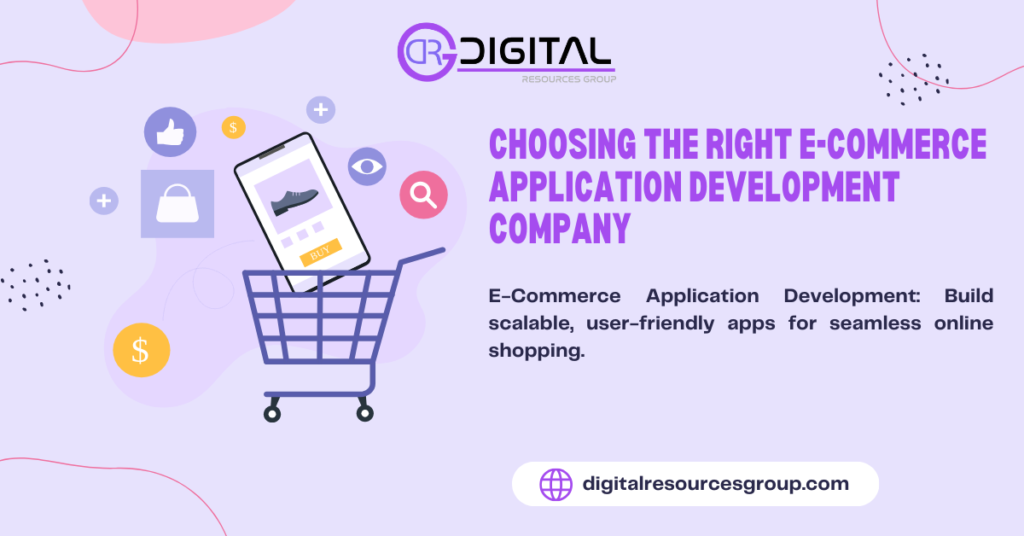
Choosing the Right E-Commerce Application Development Company
Assessing Expertise and Experience
When selecting an e-commerce application development company, it’s essential to evaluate their expertise and experience. Look for a company that has a proven track record in developing e-commerce solutions for businesses in your industry. Reviewing their portfolio of past projects can give you insights into the quality of their work and whether they have the skills necessary to meet your specific needs.
A reliable company will also have experience working with various platforms, frameworks, and technologies, ensuring that they can provide the best solution for your project. They should also be familiar with the latest trends in e-commerce and willing to incorporate innovative solutions that will give you a competitive edge.
Customer Support and Maintenance
E-commerce applications require ongoing maintenance and updates to ensure they remain secure, functional, and compatible with new technologies. The development company you choose should offer comprehensive post-launch support, including bug fixes, security patches, and system updates. They should also be available for troubleshooting any issues that arise and be responsive to your business needs as you scale.
Moreover, ongoing support ensures that your application remains in peak performance, with enhancements and optimizations being made regularly to adapt to new customer behaviors and market demands.
Cost of E-Commerce Application Development
Factors Influencing Cost
The cost of developing an e-commerce application varies significantly depending on several factors, such as the complexity of the project, the number of features required, the technology stack, and the development company’s rates. A simple, off-the-shelf solution might be more affordable, but it comes with limitations in terms of customization, scalability, and long-term performance.
For businesses looking for a fully custom solution, the cost will depend on the design, functionality, and integrations needed. A more complex application that requires advanced features such as AI, machine learning, and third-party integrations will naturally be more expensive. However, the investment in a custom solution often yields higher returns in the long run through improved customer engagement, increased sales, and better brand differentiation.
Budgeting for E-Commerce Development
It’s important to set a clear budget for your e-commerce application development project. While it may be tempting to opt for the lowest bidder, it’s crucial to prioritize quality and long-term scalability over initial cost savings. Investing in a high-quality, scalable platform will save you money in the future by reducing maintenance costs, improving sales, and minimizing downtime.
Work closely with your development partner to create a realistic budget and timeline. They should provide a detailed breakdown of costs, including design, development, testing, and ongoing maintenance. Be prepared for potential additional costs for updates and feature expansions as your business grows.
Challenges in E-Commerce Application Development
Technical Complexity
Developing a high-performing e-commerce application comes with its share of technical challenges. Ensuring scalability, security, and integration with third-party services can be complex, particularly for businesses with unique needs or a large product catalog. Ensuring seamless payment integration, data synchronization, and support for multiple devices and platforms adds another layer of complexity.
Partnering with a skilled development team can help mitigate these challenges. They will have the expertise to navigate these complexities and deliver a solution that works flawlessly across all touchpoints, from desktop to mobile.
User Experience (UX) Optimization
Creating a user-friendly, intuitive, and visually appealing e-commerce application is a significant challenge. UX optimization requires understanding customer behavior, designing intuitive navigation paths, and ensuring fast load times. Slow or confusing user experiences can drive customers away, leading to cart abandonment and lost sales.
A focus on UX design is critical to overcoming this challenge. A good e-commerce application development company will conduct extensive user research and testing to ensure that your platform is user-friendly and efficient, optimizing the entire customer journey from discovery to purchase.
Best Practices for E-Commerce Application Development
Mobile-First Design
With a significant number of e-commerce transactions happening on mobile devices, it’s essential to adopt a mobile-first approach to development. Your application should be fully optimized for mobile users, with responsive design that adapts to different screen sizes and devices. This not only improves the user experience but also enhances SEO rankings, as search engines prioritize mobile-friendly websites.
Additionally, optimizing your application for mobile includes ensuring fast load times, easy navigation, and streamlined checkout processes. A mobile-first design ensures that customers can easily browse, shop, and complete their purchases on any device.
Regular Testing and Quality Assurance
Regular testing is crucial to ensuring that your e-commerce application functions smoothly and meets your business requirements. Quality assurance (QA) testing should be conducted at every stage of the development process, from the initial design to the final deployment. This helps identify and address any bugs, performance issues, or security vulnerabilities before the application goes live.
A thorough testing process ensures that your customers will have a seamless shopping experience, and it also helps to avoid costly downtime or performance issues after the application is launched.
Maintaining and Scaling Your E-Commerce Application
Regular Updates and Optimizations
Post-launch maintenance is essential to keeping your e-commerce application running smoothly. This includes regular updates to security protocols, performance optimizations, and the addition of new features to meet changing customer demands. By continuously updating your platform, you can ensure that your business remains competitive in a rapidly evolving digital landscape.
Moreover, regular updates ensure that your application is compatible with the latest technologies, browsers, and devices, providing a consistently high-quality experience for your customers.
Scalability and Future Growth
As your business grows, so should your e-commerce application. Scalability is a key factor in ensuring that your application can handle increased traffic, larger product catalogs, and expanded customer bases without compromising performance. Your development company should build a solution that is capable of scaling as needed, allowing you to expand into new markets or introduce new product lines without overhauling your platform.
Frequently Asked Questions (FAQs)
What is the cost of developing an e-commerce application?
The cost of developing an e-commerce application depends on several factors, including the complexity of the project, the features required, the platform chosen, and the development company. A simple application might cost less, but a fully customized solution can be more expensive. It’s important to work with your development partner to define a clear budget and timeline.
How long does it take to develop an e-commerce application?
The development time for an e-commerce application depends on its complexity and the features required. On average, a custom e-commerce application can take between 2 to 6 months to develop, but it may take longer for more complex projects.
Can I update my e-commerce application after it’s launched?
Yes, ongoing maintenance and updates are essential to keeping your e-commerce application up-to-date. Your development company will typically provide post-launch support to fix bugs, optimize performance, and add new features as needed.
Conclusion:
Developing a high-quality e-commerce application is a key step in transforming your business and positioning it for success in the digital age. By choosing the right development partner, you can create a tailored solution that meets your unique needs, delivers exceptional customer experiences, and scales with your business as it grows.
At Digital Resources Group, we specialize in crafting innovative, secure, and scalable e-commerce applications that help businesses thrive in the competitive online marketplace. Contact us today to learn how we can help you unlock your e-commerce potential!

